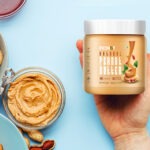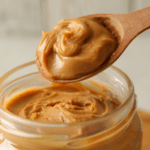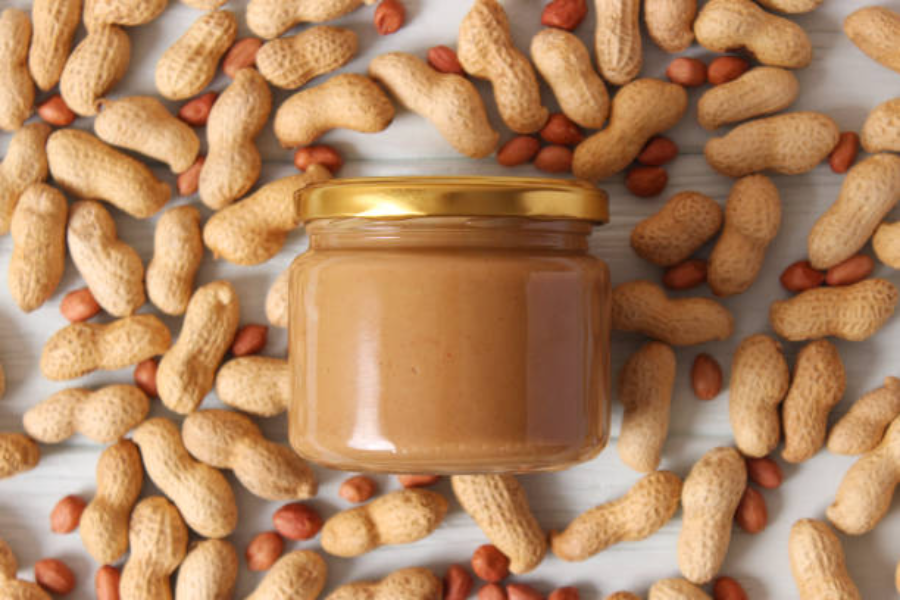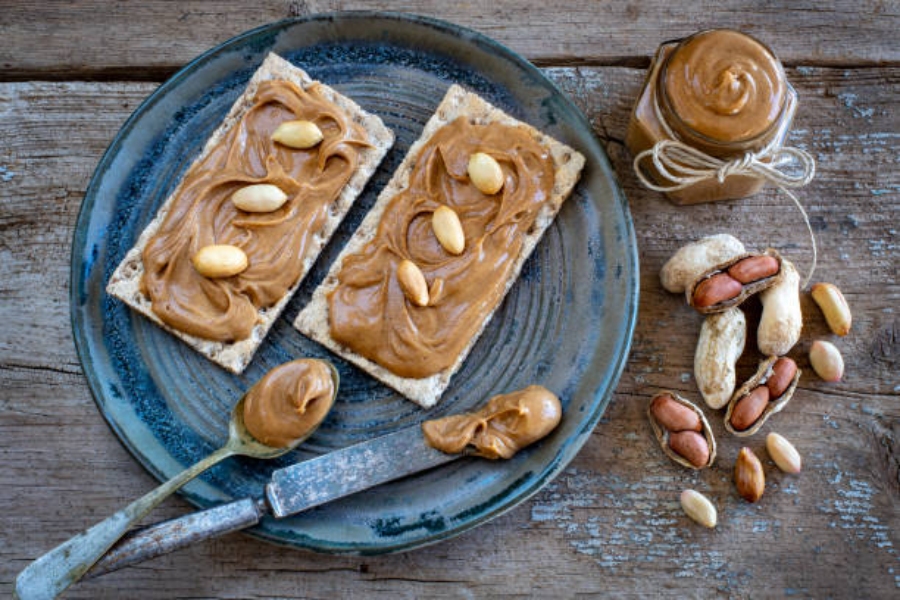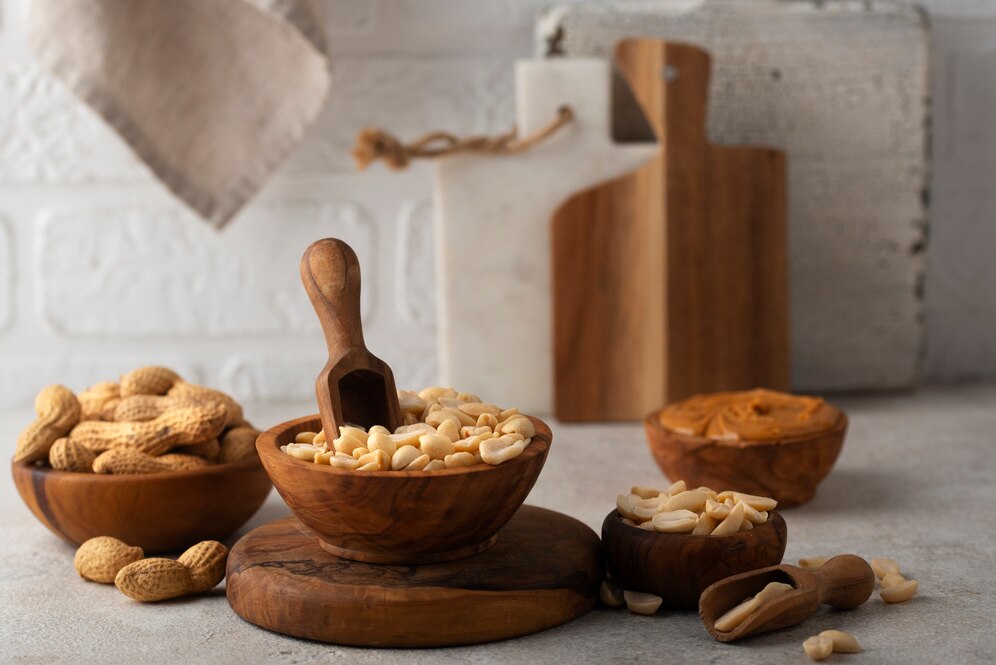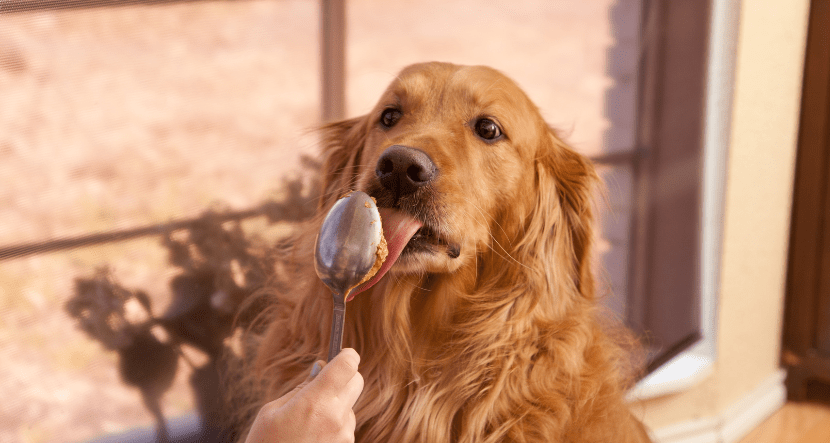
Peanut Butter for Pets: Can Dogs and Cats Eat It?
Peanut butter has become a favourite treat for pets lately, but pet owners must be cautious. This guide will dive into feeding peanut butter to dogs and cats, covering nutrition, risks, and safe practices.
Understanding Peanut Butter
Roasted peanuts are ground into a smooth spread to create peanut butter. Small amounts of salt, sugar, or oil may be added to some varieties to improve flavour and consistency.
There are different types of peanut butter available, such as creamy, chunky, natural, and reduced-fat, each with unique textures and flavours.
Peanut butter is nutritionally rich, containing healthy fats, protein, vitamins, minerals, and dietary fibre for digestive health.
Dogs and Peanut Butter
Canine love for peanut butter: The majority of dogs have an undeniable fondness for peanut butter, making it an ideal treat or training reward.
Health benefits: Peanut butter can serve as a wholesome addition to a dog’s diet, furnishing essential nutrients and a vital protein source crucial for muscle growth and repair.
Risks and allergies: While generally safe for dogs, some may develop allergies or sensitivities to peanut butter. Keep a vigilant eye out for adverse reactions like vomiting, diarrhoea, or itching.
Safe consumption: When offering peanut butter to your dog, ensure it lacks xylitol, a toxic sweetener. Moderation is key, as overindulgence can lead to weight gain and related health concerns.
Cats and Peanut Butter
Cats’ indifference: In contrast to their canine counterparts, many cats aren’t particularly enamoured with peanut butter. However, some may display interest, especially when combined with other foods.
Peanut butter consumption: While cats can technically consume small amounts of peanut butter, it’s not recommended as a regular dietary component. Cats possess unique nutritional requirements that peanut butter may not fulfil adequately.
Health considerations: A few cats might experience digestive disturbances or weight gain due to the high-fat content in peanut butter. Opting for specialised cat treats is often a better choice.
Understanding Allergies in Pets
Common food allergies: Dogs and cats can develop allergies to various foods, including peanuts. Dairy, grains, and specific protein sources also top the list of common allergens.
Signs and symptoms: If your pet exhibits signs of itching, redness, swelling, or breathing difficulties after peanut butter consumption, allergies might be at play. Consult your veterinarian promptly if an allergic reaction is suspected.
Identifying allergies: Veterinarians can perform tests to pinpoint specific food allergies, helping you avoid further allergic reactions by steering clear of the allergenic substance.
Choosing the Right Peanut Butter
Reading labels: Selecting peanut butter for your pet necessitates a careful label examination to rule out harmful additives or sweeteners. Xylitol, in particular, must be avoided due to its toxicity to pets.
Organic and natural options: Prioritising organic or natural peanut butter varieties is advisable, as they generally contain fewer additives and preservatives, potentially promoting better pet health.
Homemade peanut butter: Crafting homemade peanut butter following pet-safe recipes grants you full ingredient control, ensuring a safer treat for your furry friend.
Peanut Butter Products for Pets
Specialised pet treats: Numerous pet-specific peanut butter treats are available, tailored for dogs and cats, often enriched with vitamins and minerals to bolster your pet’s health.
Product safety: While these specialised treats offer convenience, scrutinise the ingredient lists and opt for reputable brands to sidestep unnecessary additives or subpar ingredients.
Training and Rewards with Peanut Butter
Training tool for dogs: Peanut butter can be a potent training aid for dogs, thanks to its enticing aroma and flavour. It’s a valuable reward for reinforcing desired behaviours during training sessions.
Reward techniques: When using peanut butter as a reward, do so in small quantities to prevent overconsumption. It can also be introduced via treat-dispensing toys for mental stimulation.
Preventing overindulgence: Due to its calorie density, exercise caution during training sessions to prevent overfeeding and maintain a balanced diet.
Homemade Peanut Butter Treat Recipes
Healthy treats for dogs: Numerous simple recipes exist for crafting homemade peanut butter treats for dogs, offering a healthier alternative to store-bought options.
DIY recipes for cats: Cats can also enjoy homemade peanut butter treats, with a caveat—ensure these recipes adhere to their unique dietary needs and exclude any toxic ingredients.
Making homemade treats: Crafting homemade treats necessitates high-quality ingredients, adherence to food safety standards, and the exclusion of any known pet toxins.
Health Concerns and Precautions
Calorie content and obesity: Peanut butter is calorie-rich, necessitating careful portion control to avert weight gain and obesity.
Avoiding dangerous additives: Steer clear of peanut butter containing xylitol or added sugars/artificial sweeteners, as they pose severe health risks to pets.
Rancidity concerns: Peanut butter can spoil over time, so proper storage and vigilant checks for signs of rancidity are vital before offering it to your pet.
Peanut Butter and Dental Health
Dental cleaning method: Some pet owners utilise peanut butter to clean their pets’ teeth through the licking action, albeit it cannot replace regular toothbrushing or professional dental care.
Dental risks: Peanut butter’s stickiness may augment the risk of tooth decay and gum disease. Consult your veterinarian for appropriate oral hygiene measures.
Introducing Peanut Butter to Pets
Start slowly: Begin with a small amount of peanut butter to see how your pet reacts. Watch for allergies or digestive problems.
Monitor and adapt: Keep a close eye on your pet’s response and adjust their intake accordingly. If negative reactions arise, stop the peanut butter and consult your vet.
Peanut Butter Recall and Safety Concerns
Recalls and contamination: Over time, peanut butter recalls have arisen due to contamination or health concerns. Staying informed about product safety and recalls is crucial.
Staying updated: Rely on trusted sources like the FDA or consumer advocacy organisations to stay abreast of peanut butter recalls or safety alerts. Regularly inspect product labels and packaging for updates.
In summary, peanut butter can be a tasty and healthy treat for pets when given thoughtfully. Always weigh your pet’s unique needs against the potential risks and benefits. Consulting with a vet is essential for informed decisions regarding peanut butter in your pet’s diet.




